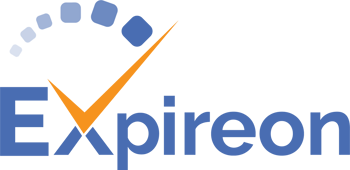- Solutions
- Information Governance
- Merger & Acquisition Remnants
Merger & Acquisition Remnants
Enterprises looking to merge or acquire other organizations face a litany of unique challenges from an information governance standpoint. Data and systems need to be integrated in a functional and compliant workflow.
An effective information governance solution is key to ensuring that data is migrated into an enterprise’s tenant while maintaining its integrity. Strategic data handling is critical for both operational success and for meeting compliance and legal standards.

The Problems
Legacy systems, disparate data formats, and regulatory requirements all add complexity to mergers and acquisitions. Enterprises are often concerned with data integrity, compliance complexities, resource constraints, and disposal of redundant data. All of these considerations and more are essential when planning your data migration.
Complex Environments
Post M&A, enterprises are often left managing systems that may not align well with their current tools, including Microsoft Purview, but are essential to meeting regulatory requirements and safeguarding the integrity of an acquired entity's data.
Difficulty of Searching
Disparate data sources are difficult to search across and can often lead to inefficiencies, but they must be maintained to meet data governance standards. Enterprises often retain their M&A remnants in their original systems creating an eDiscovery maze that is a constant drain on valuable resources.
Complexity of Data Migration
Due to the finite time of IT personnel and the risky nature of in-house data migration, enterprises are often intimidated by the prospect of migrating all of their data into a single platform.
Storage Costs
After mergers and acquisitions redundant or outdated information is often kept because nobody is aware it can be deleted. An open storage platform can help enterprises mitigate these costs.
Limitations of Archive Migration Tools
It is essential for enterprises to understand the differences between generations of archive migration tools, and pick one that suits their needs.
Costs of Leaver Data
As cloud providers are starting to charge for licenses for both current users and leavers, the associated costs with storing leaver data may become a financial burden for many large enterprises. Understanding the types of data being stored and using the right platform are key.
How We Help
Cloudficient’s expertise in handling data migrations means that we are confident in our ability to provide a top-notch data migration service for enterprises looking to consolidate their archives. Learn how Cloudficient utilizes Kubernetes to power our migration service.
A great home for this data is Expireon, Cloudficient’s Information Governance platform. Expireon charges by data volume, not user count. This means that users no longer with an enterprise will never require a license.
Data housed in Expireon is associated directly with the custodian across email, messaging, and file system platforms. This data can be quickly searched, placed on legal hold, indexed, and exported when necessary; otherwise it will sit in a cost-effective repository until expiry.
.jpg?width=375&height=250&name=saas-concept-collage%20(4).jpg)

Related Resources

Navigating Post Merger Integration Challenges
Mergers and acquisitions represent significant opportunities for companies to expand their market presence, acquire new capabilities, and create...

Complete Guide To Post-Acquisition Integration
60% of CEOs plan to make at least one acquisition in the next three years. Bringing a whole set of new team members and business capabilities...

Navigating Merger and Acquisition Negotiation Tactics
Have you ever played chess? Do you know the feeling of suspense as your adversary takes their turn when playing chess? That same tension is present...
.png?width=620&height=82&name=Untitled%20design%20(18).png)
.png?width=600&height=79&name=Untitled%20design%20(18).png)


.png?width=209&height=300&name=pst%20guide%20front%20cover%20(1).png)